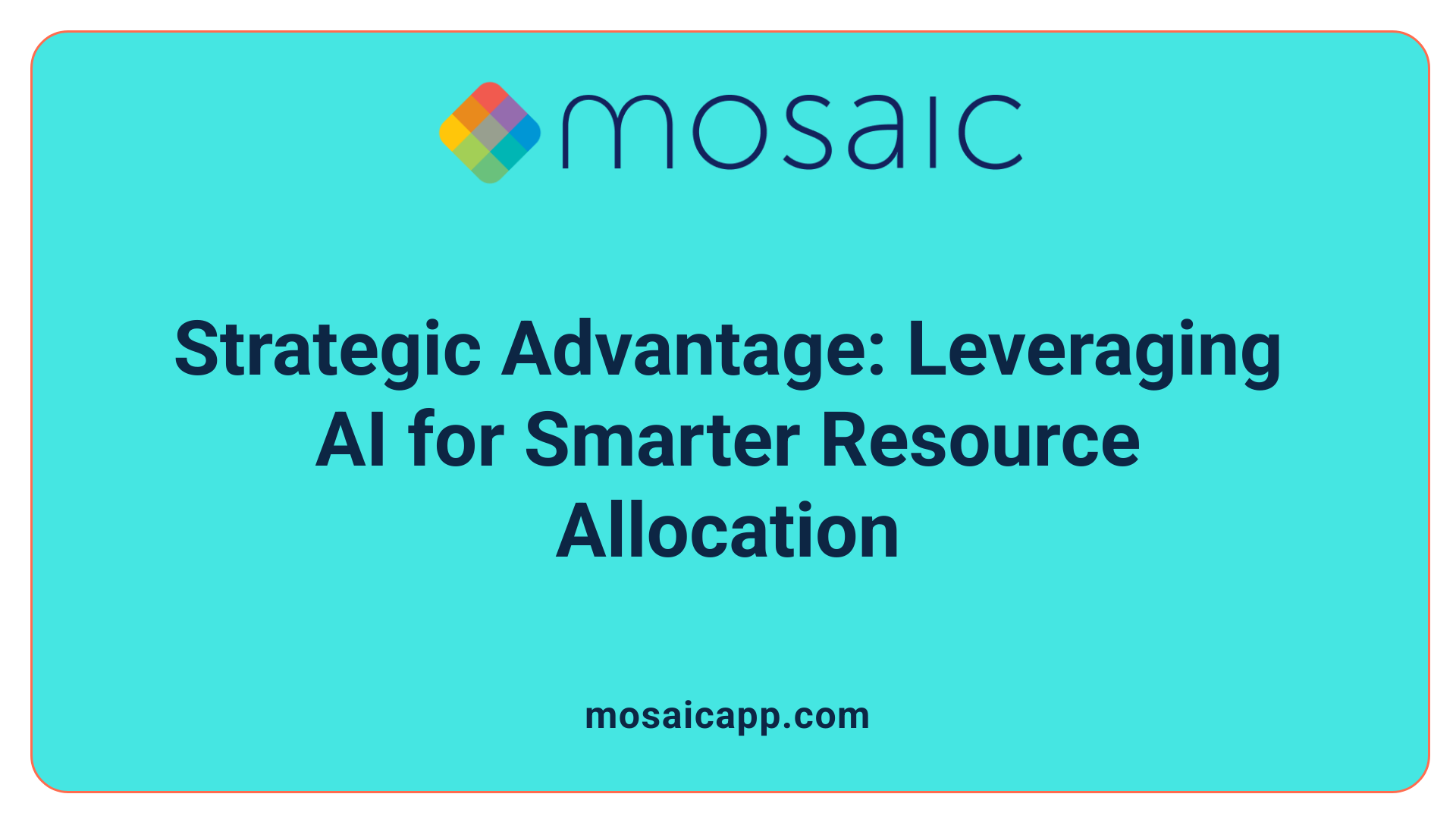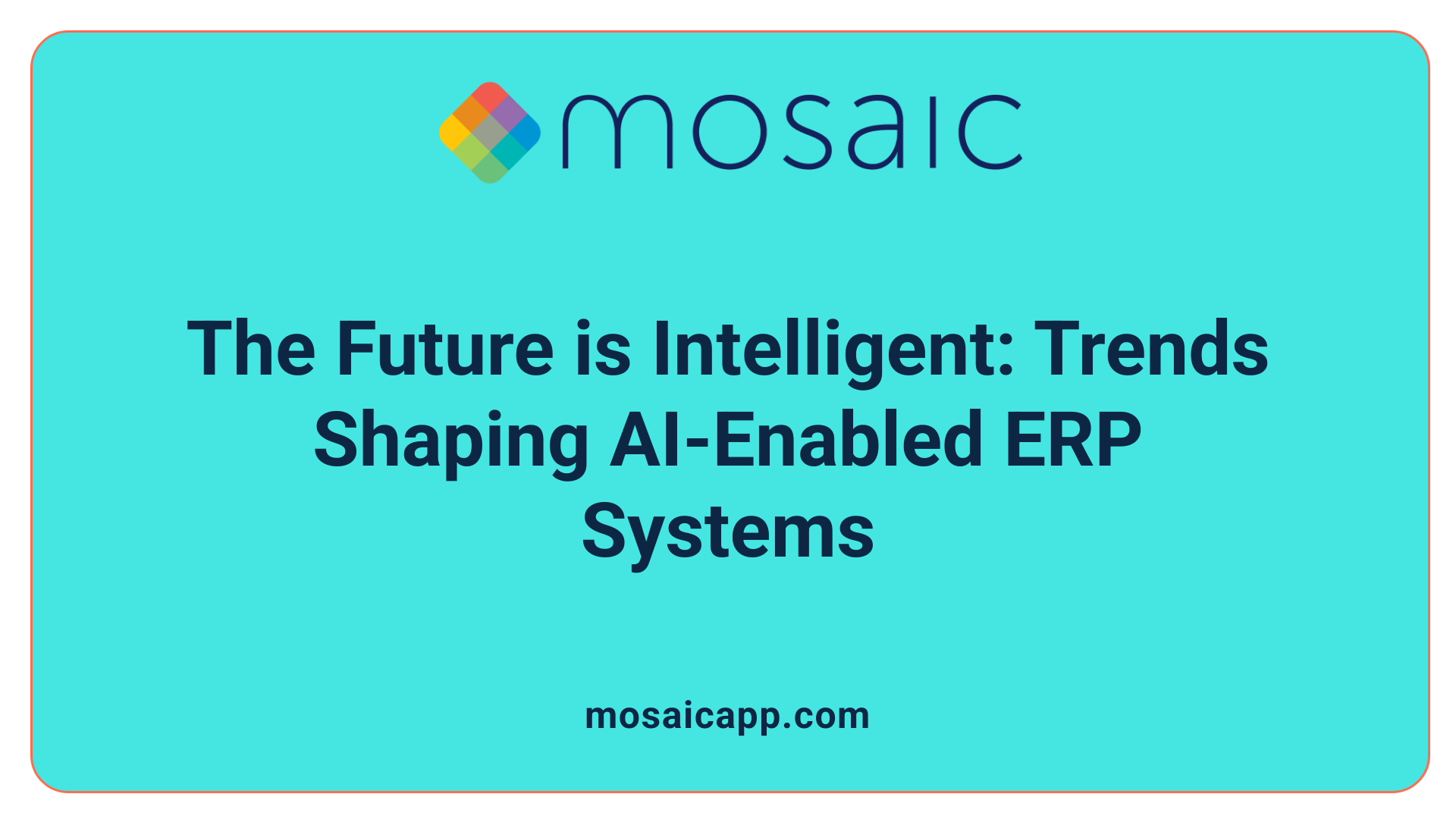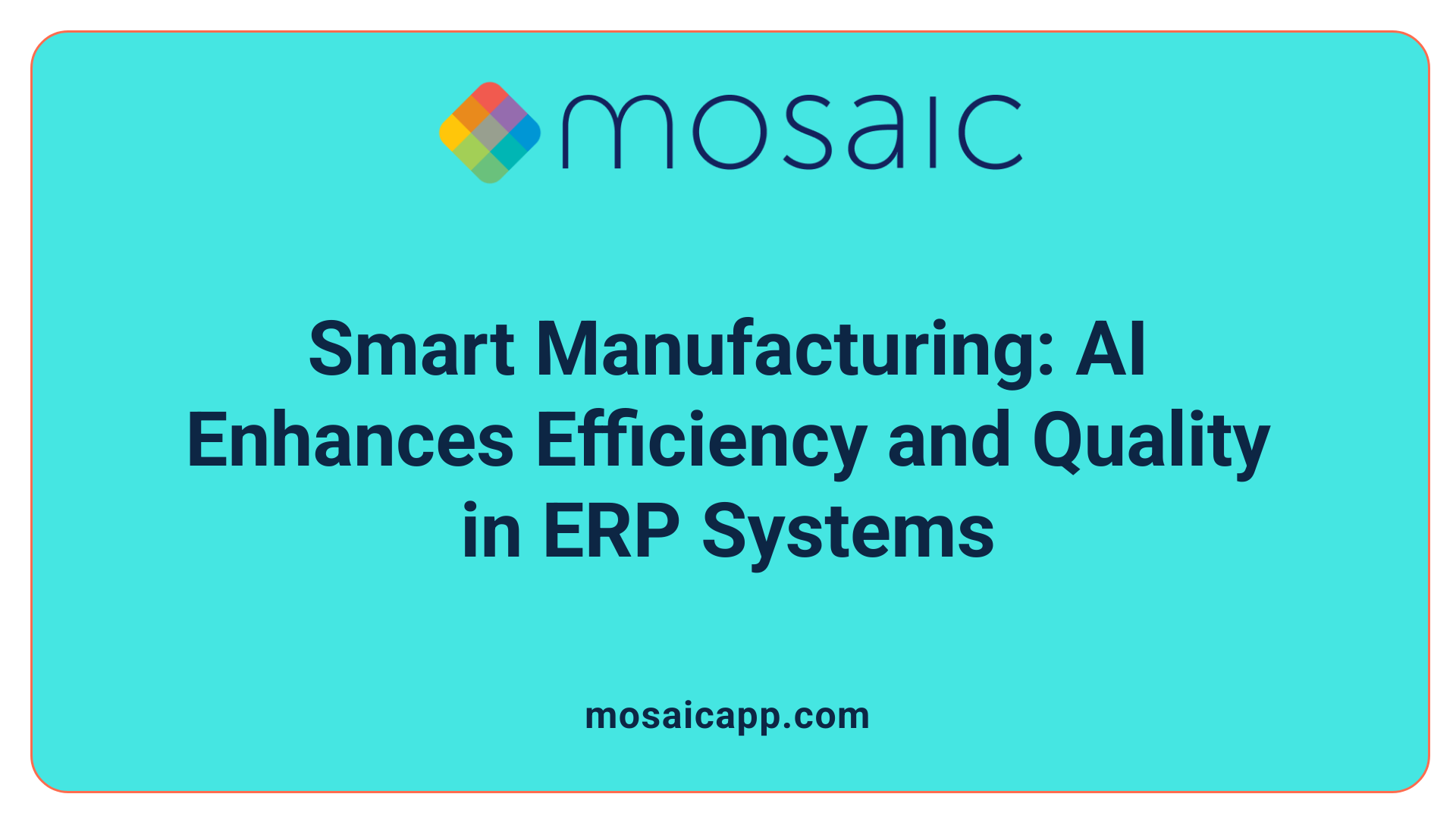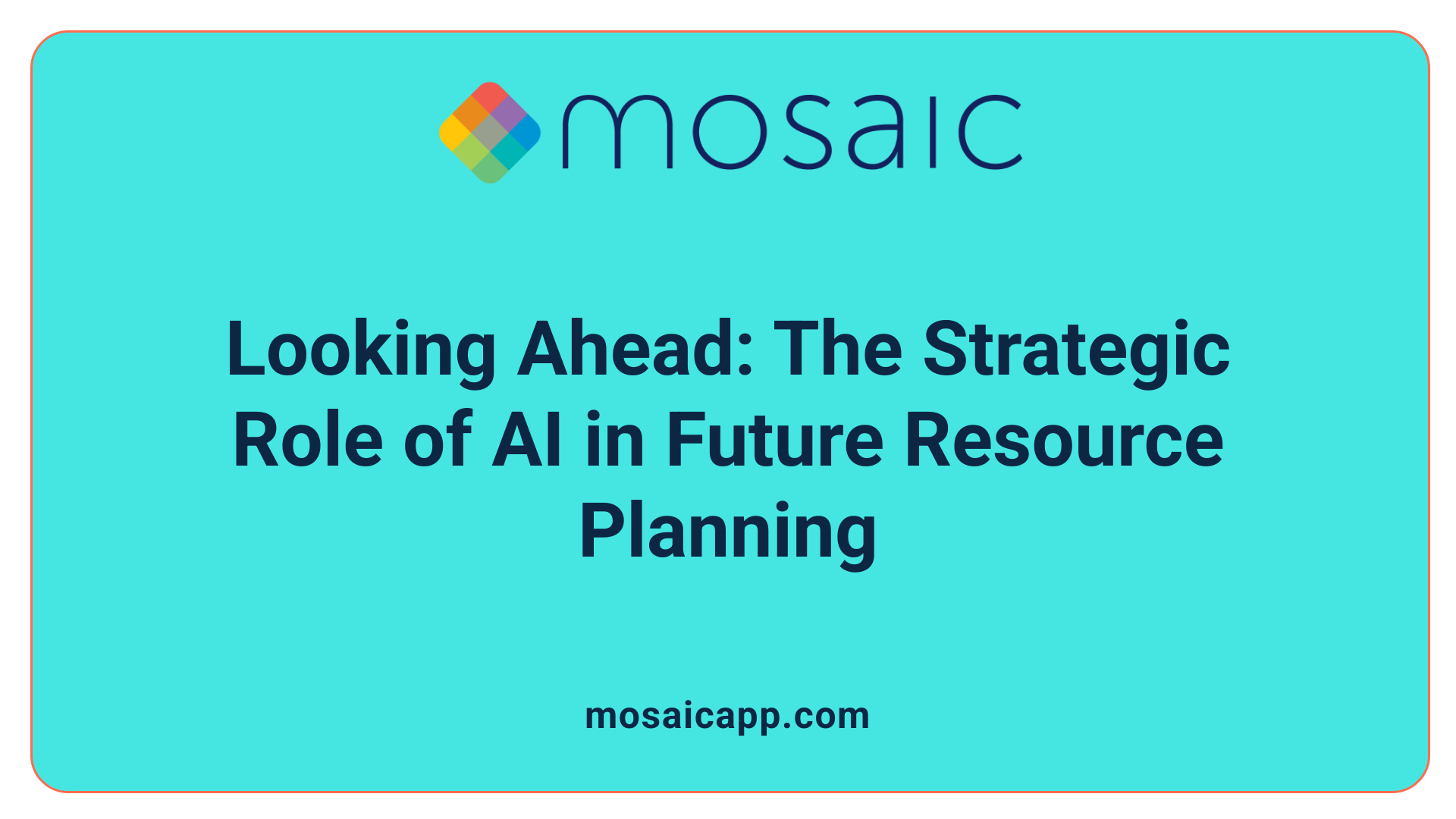The Rise of AI-Enhanced Resource Planning Systems
In today’s competitive landscape, modern firms are increasingly turning to artificial intelligence (AI) integrated resource planning systems to streamline operations, improve decision-making, and foster innovation. This strategic shift is driven by rapid technological advancements, the proliferation of data, and the need for agility in volatile markets. As AI capabilities grow more sophisticated and accessible, organizations across industries are recognizing the imperative to leverage these tools for sustained growth and competitive advantage.
The Strategic Benefits of AI Integration in Resource Planning

What are the strategic benefits of integrating AI into resource planning systems for modern firms?
Incorporating AI into resource planning offers numerous advantages for contemporary businesses. It enables organizations to analyze vast datasets swiftly, providing deeper insights into operational and market conditions. This comprehensive data analysis supports more accurate demand forecasting and strategic decision-making.
AI automates routine and repetitive tasks such as scheduling, inventory management, and resource allocation. This automation reduces errors, accelerates processes, and lowers operational costs, giving firms a competitive edge.
Real-time insights generated by AI systems ensure that managers are equipped with the latest information, allowing for swift responses to changing market dynamics. AI also facilitates sophisticated scenario modeling, helping firms evaluate potential risks and opportunities before committing resources.
Furthermore, AI enhances risk mitigation by predicting issues like supply chain disruptions or demand fluctuations. It supports dynamic resource adjustments and strategic planning, minimizing vulnerabilities.
Customer experience is also improved through AI-driven personalization, predictive services, and efficient workflow management. This leads to higher satisfaction and loyalty.
Overall, AI integration in resource planning promotes organizational agility, optimizes resource utilization, and supports sustainable growth, positioning companies favorably in competitive landscapes.
Current Trends and the Evolving Role of AI in ERP

AI is increasingly becoming a mainstream component of enterprise resource planning (ERP) systems, transforming how businesses operate across industries. Today, large-scale adoption includes features like predictive analytics, natural language processing, robotic process automation (RPA), and AI-powered agents that act as digital workers. These capabilities enable smarter automation, seamless data analysis, and rapid decision-making.
Major ERP providers such as Oracle, SAP, Microsoft, and Infor are actively integrating advanced AI tools into their platforms. This trend enhances functionalities such as demand forecasting, inventory management, fraud detection, and customer engagement, making ERP systems more intelligent and responsive. The market for AI-enabled ERP solutions is experiencing rapid growth, fueled by investments from tech giants and ongoing technological innovation.
AI’s role is shifting towards greater autonomy. Predictions point to increased use of autonomous decision-making where AI systems make real-time adjustments in operations, supply chains, and resource allocation. Augmented intelligence is also expanding, providing users with more personalized interfaces and decision support, blending human expertise with machine insights.
Generative AI is making headlines for its ability to create content, generate reports, and facilitate scenario planning within ERP environments. This industry-specific evolution allows tailored solutions that meet the unique needs of sectors like healthcare, manufacturing, and finance, optimizing workflows and strategic planning.
Overall, the integration of AI in ERP systems is reshaping business landscapes by driving efficiency, fostering innovation, and maintaining competitive edges. As AI technologies mature, we will see increasingly autonomous ERP ecosystems that deliver smarter, faster, and more adaptive business operations.
Advantages of AI-Enhanced ERP Systems in Operations and Decision-Making
What are the advantages of AI-enhanced ERP systems in improving operational efficiency and decision-making?
AI-enhanced ERP systems bring transformative benefits to businesses by making operations smarter and more efficient. They automate routine tasks such as data entry, inventory management, and financial reporting, allowing staff to focus on strategic activities. Beyond simple automation, these systems handle complex processes, including demand forecasting and supply chain optimization, through advanced machine learning algorithms.
One major advantage is the ability to analyze vast datasets quickly, providing real-time insights that help organizations respond faster to market changes. Predictive analytics enable accurate demand planning, cash flow prediction, and proactive maintenance scheduling, reducing downtime and operational costs.
AI features like natural language processing and chatbots improve user experiences by offering intuitive interfaces, answering queries, and assisting in decision-making. Anomaly detection identifies issues early, preventing potential disruptions.
Furthermore, AI-driven ERP solutions support personalization for customers and employees, enhancing engagement and satisfaction. With AI, companies gain the agility to adapt rapidly, personalize services, and make more informed, data-backed decisions.
Integrating AI into ERP systems transforms traditional workflows into intelligent, scalable processes. This not only boosts efficiency but also provides a competitive advantage, helping organizations grow and innovate confidently.
Impact of AI on Manufacturing and ERPs

How does AI integration impact manufacturing and enterprise resource planning processes?
AI integration dramatically transforms manufacturing and ERP workflows by introducing smarter automation, improved data analysis, and predictive capabilities. In manufacturing, AI-powered predictive maintenance forecasts equipment failures through sensor data and historical analysis, reducing downtime by up to 30% and saving costs. Demand forecasting is enhanced by analyzing sales trends, market data, and external influences like weather and social media sentiment, decreasing forecasting errors by up to 50% and inventory shortages by about 65%.
Quality control also benefits from AI, with visual inspection systems detecting defects with up to 97% accuracy based on data from cameras and sensors. These improvements allow manufacturers to produce higher quality products while minimizing waste.
AI's role extends to optimizing production schedules dynamically. By analyzing real-time shop floor data, AI enables flexible schedules that adapt to changes, delays, or resource constraints, enhancing overall efficiency. Supply chain management also sees significant gains; AI automates communication with suppliers, analyzes logistics performance, and helps in procurement decisions, leading to substantial cost savings.
Furthermore, AI fosters human-machine collaboration through virtual assistants, digital twins, and augmented reality. These tools assist workers in complex decision-making, training, and safety enhancement, creating a more responsive and intelligent manufacturing environment.
In ERP systems, AI supports complex functions such as anomaly detection, demand planning, inventory optimization, and risk prediction. Leading solutions like SAP S/4HANA and Oracle ERP Cloud incorporate AI for invoice reconciliation, fraud detection, and trend forecasting, empowering businesses to make data-driven decisions quickly.
In summary, AI adoption in manufacturing and ERP processes enhances efficiency, reduces costs, and promotes innovation. It enables smarter decision-making, proactive maintenance, and adaptive production planning—elements essential for thriving in the era of Industry 4.0.
Future Developments and Strategic Importance of AI in Resource Planning

What are the future developments and the strategic importance of AI in resource planning for modern firms?
Looking ahead, AI in resource planning is set to become even more sophisticated and industry-specific. Future AI tools will likely feature advanced functionalities such as generative AI, which can create new data, solutions, or content automatically. These innovations will facilitate real-time monitoring of operations, predictive maintenance of equipment, and autonomous decision-making in areas like inventory management, project scheduling, and resource allocation.
These developments will significantly improve efficiency, reduce operational costs, and enhance responsiveness. For example, predictive analytics will enable organizations to forecast demand accurately and adjust resources proactively, minimizing waste and optimizing productivity.
Strategically, AI's role in resource planning will become crucial for organizations aiming to stay competitive in an increasingly digital and connected environment. AI will support smarter workflows, faster decision-making, and enhanced agility—all vital in the Industry 4.0 and Industry 5.0 paradigms that emphasize automation and human-AI collaboration.
Cloud-based AI-powered ERP systems will gain wider adoption due to their scalability and affordability. This accessibility will democratize advanced AI capabilities, allowing small and medium-sized firms to leverage technologies previously confined to large corporations.
Furthermore, future AI integration will require robust governance frameworks focused on transparency, ethics, and sustainability. These frameworks will ensure responsible AI use, promoting trust and aligning AI-driven resource planning with organizational values.
Overall, AI's strategic importance will lie in its ability to help organizations adapt swiftly to market changes, innovate continuously, and operate sustainably in a rapidly evolving business landscape.
Integrating AI for a Smarter and More Agile Business Future
Why do contemporary businesses prefer AI-powered resource planning solutions?
Contemporary organizations favor AI-driven resource planning tools because they offer a substantial boost in operational efficiency. These systems automate routine tasks such as data entry, inventory management, and forecasting, freeing up human resources for more strategic activities.
AI enhances decision-making by analyzing large volumes of data to provide accurate predictions and insights, which help in optimizing supply chains and resource allocation. This predictive capability allows businesses to forecast demand more precisely, identify potential risks early, and respond swiftly to market changes, fostering greater agility.
Moreover, AI supports personalized customer interactions, improving customer satisfaction and loyalty, which ultimately drives revenue growth. By integrating AI into their operations, companies become more adaptable, proactive, and competitive.
In essence, AI-powered resource planning helps organizations operate smarter, anticipate future trends, adapt to dynamic environments, and maintain a sustainable growth trajectory.
How widely has AI been adopted in enterprises?
AI adoption in business is accelerating rapidly, moving from the realm of niche applications to mainstream use. Major investments from tech giants like Microsoft, SAP, Google, Amazon, Meta, and Apple signal a shift that’s reshaping industries.
Leading ERP providers such as Oracle, SAP, Microsoft, Infor, and Epicor are embedding advanced AI functionalities into their solutions. These enhancements include predictive analytics, natural language processing, and automated workflows that improve planning, forecasting, and decision-making processes.
The integration of AI is increasingly industry-specific, allowing tailored solutions for healthcare, finance, manufacturing, and supply chain management. The ongoing development also focuses on explainable AI and hyperautomation, which ensure transparency and further streamline operations.
What skills are necessary for the future AI-enabled workforce?
To thrive in an AI-driven business landscape, organizations need to invest in skill development and training programs. Business leaders and employees must understand AI fundamentals, data analysis, and ethical considerations.
Courses like 'AI Essentials for Business' help managers leverage AI strategically. Employees involved in operations, IT, and data management should develop competencies in machine learning, natural language processing, and AI tool implementation.
Future-ready firms will also emphasize cross-disciplinary skills, combining technical expertise with strategic thinking, problem-solving, and ethical judgment. Building a culture of continuous learning ensures organizations stay ahead in adopting and benefiting from AI innovations.
What are the current regulatory and ethical considerations?
As AI becomes integral to business operations, regulatory frameworks and ethical practices are critical. Governments and industry bodies are focusing on ensuring AI systems are transparent, fair, and secure.
Risks such as data bias, lack of explainability, and privacy concerns are under scrutiny. Human oversight, often called 'human-in-the-loop,' remains essential to mitigate these issues and maintain trust.
Organizations are encouraged to adopt responsible AI principles, including compliance with data protection laws, ensuring ethical use, and promoting accountability. Developing AI policies aligned with regulatory standards helps prevent misuse and fosters consumer confidence.
Industry benchmarks and future outlook
The future of AI in ERP systems is promising, with developments like industry-specific AI applications, enhanced explainability, and hyperautomation. These advances will further enhance efficiency, reduce costs, and improve customer experiences.
Businesses will increasingly depend on AI to enable smarter decision-making, automate complex tasks, and support sustainable growth. As AI ecosystems mature, firms that actively invest in training, ethics, and innovation will maintain a competitive edge.
Aspect Current Trends Future Outlook Additional Notes Adoption Level Rapidly increasing Steady growth with industry focus Widespread mainstream acceptance Skills Needed Data analysis, AI literacy Advanced machine learning, ethics Emphasizing continuous learning Regulatory Focus Data privacy, transparency Explainability, accountability Responsible AI frameworks Industry Applications Healthcare, finance, manufacturing Industry-specific tailored AI systems Personalized and efficient solutions
The Strategic Edge of Adopting AI in Resource Planning
As artificial intelligence becomes an integral part of enterprise resource planning, companies that embrace these advanced solutions stand to gain unmatched efficiencies, agility, and competitive advantage. AI not only transforms operational processes but also enables smarter decision-making, drives innovation, and fosters resilience amid economic uncertainties. Looking ahead, the continued evolution of AI—including industry-specific applications, explainable models, and ethical frameworks—will cement its role as a cornerstone of modern business strategy, making resource planning with AI integration not just an option but a necessity for future success.
References
- AI in ERP: The Next Wave of Intelligent ERP Systems
- 5 Key Benefits of Integrating AI into Your Business
- ERPs Compared: The Role of AI in Modern Business Solutions
- AI in Enterprise Resource Planning (ERP): Trends & Insights
- AI in Project Management: Resource Planning & Delivery
- 10 ways artificial intelligence is transforming operations ...
- AI Advancements in Materials Requirements Planning
- The Competitive Advantage of Using AI in Business
